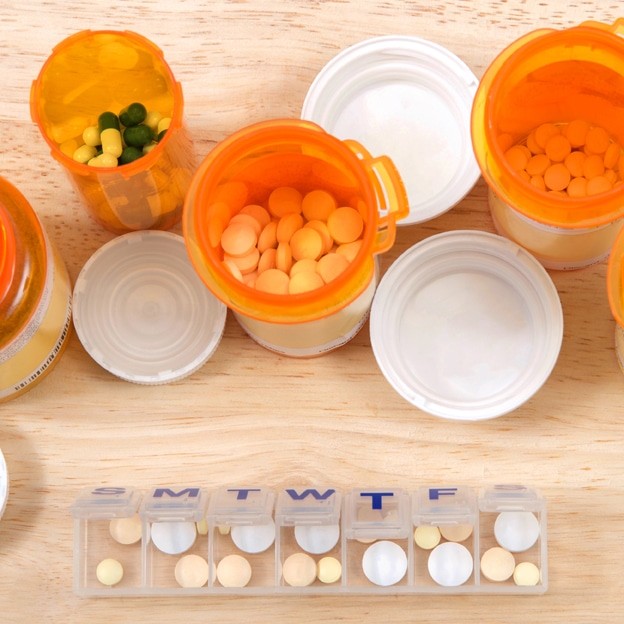At-A-Glance
- ACE-Inhibitors (a class of blood pressure medication), NSAIDs (non-steroidal, anti-inflammatory drugs), most osteoporosis medications, steroids, and antibiotics can cause or worsen acid reflux, including respiratory reflux, silent reflux, LPR, Heartburn, and GERD.
- If you have reflux, you should get totally off any ACE-Inhibitor. Explain the problem to your doctor, even refer my blogs; and ask your doctor for an alternative type of blood pressure medication, e.g., diuretics, calcium channel blockers, beta blockers, etc.
- As far as causing reflux, in most of the other groups of medicines, some drugs are worse than others. I have made some “best choice” recommendations (knowing that your medical insurance may be a stumbling block for the alternative medication coverage).Disclaimer: I do not know all about the drugs mentioned and discussed herein, and so I declare that there may be significant errors or errors of omission in this post; the information here is a combination of a review of medical information and my clinical experience.
With Acid Reflux, Are There Medications That I Should I Avoid?
Yes! There are six groups of prescription and over-the-counter drugs that cause or worsen acid reflux. That said, there are sometimes “best choice” medicines for the refluxer.
(1) ACE Inhibitors (a class of blood pressure medicine)
(2) Osteoporosis meds
(3) NSAIDs (Non-Steroidal Anti-Inflammatory Drugs)
(4) Some Muscle Relaxants
(5) Some Antibiotics
(6) Steroids
ACE-Inhibitors
ACE-inhibitors are a popular, frequently-prescribed class of blood pressure medication, which are really BAD for people with reflux. Indeed, ACE-inhibitors are the number one cause of iatrogenic reflux and chronic cough; see also my ACE-Inhibitor Blog and The Chronic Cough Enigma. (BTW, “ACE” stands for angiotensin converting enzyme.)
If you have reflux or cough, you should get completely off any ACE-inhibitor; tell your doctor that it causes acid reflux, and that you would prefer to be on an alternative type of blood pressure medicine; e.g., diuretics, calcium channel blockers, beta blockers, etc.
There is no “best choice” ACE-inhibitor; your reflux (and cough) will not get better as long as you are on an ACE-inhibitor! The “best choice” is none!
Listed below are many of the commonly-used ACE-inhibitors. This list may not complete, so if you are on any blood pressure medicine, ask Google, “Is _____ an ACE-inhibitor.” If it is, then ask your doctor to change it.
Generic names in lowercase and brand names in uppercase
amlodipine (Norvasc, Katerzia, Perindopril)
amlodipine/benazepril (Lotrel)
benazepril (Lotensin, Lotrel)
captopril (Capoten, Capozide))
enalapril (Vasotec, Vaseretic)
fosinopril (Monopril)
lisinopril (Prinivil, Zestril)
benazepril (Lotensin)
moexipril (Univasc, Uniretic)
perindopril (Aceon, Coveram)
quinapril (Accupril, Accuretic, Quinaretic)
ramipril (Altace)
trandolapril (Mavik)
trandolapril/verapamil (Tarka)
Osteoporosis Medications
With regard to causing reflux, these meds are not all the same. Reflux is most common (worst) with Fosamax and Actonel, and perhaps better with Boniva; but the best choice is Reclast, the yearly injection … and as a second choice, Prolia, a twice-yearly injections.
Unfortunately, part of the problem with my recommendations may be that different medical insurance carriers may or may not cover the best choices. Does Medicare cover Reclast? I just don’t know the answer. Here are all the osteoporosis meds:
alendronate (Fosamax), a weekly pill.
risedronate (Actonel), a weekly or monthly pill.
ibandronate (Boniva), a monthly pill or quarterly intravenous (IV) infusion
denosumab (Prolia, Xgeva), twice a year subcutaneous injection
zoledronic acid (Reclast), an annual IV infusion
NSAIDs (Non-Steroidal Anti-Inflammatory Drugs)
Without exception, all of the prescription NSAIDs cause or worsen reflux. In my practice, Celebrex and Voltaren are worst (but it may just be that they are the most commonly prescribed). Again, all the prescription NSAIDs are problems for the refluxer.
Of the over-the-counter options, naproxen is the worst, while the best is acetaminophen (which is not an NSAID and does not cause reflux). The second best choice would be ibuprofen. But it also matters how often you are taking them. If you are taking and NSAID once in a while, it’s probably not going to be a problem for your reflux; but if you are taking them daily, even multiple times a day, then your reflux will get worse … and if you didn’t have reflux before, heavy use of NSAIDs may be the tipping point..
Prescription NSAIDS
celecoxib (Celebrex)
diclofenac (Voltaren)
fenoprofen (Nalfon)
indomethacin (Indocin)
ketorolac tromethamine (Toradol)
meclofenamate sodium (Meclomen)
diflunisal (has a lot of adverse drug interactions)
flurbiprofen (Ansaid)
Over-The Counter NSAIDs
naproxen (Aleve)
salicylic acid aka aspirin
ibuprofen (Advil, Motrin)
naproxen (Aleve, Anaprox, Naprosyn)
Muscle Relaxants
It appears that all of the muscle relaxants cause reflux by relaxing the lower esophageal sphincter. Of those below, cyclobenzaprine and methocaramol seem to be the worst. I have not included diazepam (valium) on the list, because it doesn’t cause reflux.
cyclobenzaprine (Flexeril, Fexmid, Amrix)
chlorzoxazone (Parafon, Lorzone)
carisoprodol (Soma, Vanadom)
metaxalone (Skelaxin, Metaxall)
methocarbamol (Robaxin)
orphenadrine (Norflex)
tizanidine (Zanaflex)
Antibiotics & Steroids
Over the years, many of my reflux patients have reported that the onset of their reflux problem was during or after taking a course of antibiotics, and in some cases, antibiotics and steroids. Let’s talk the antibiotics first: Some cause reflux, some don’t. In my experience, the antibiotics that cause the worst reflux are doxycycline (Vibramycin, Efracea, Periostat), amoxicillin (Amoxil), amoxicillin/clavulanate (Augmentin), and clindamycin (Cleocin).
Fortunately, there are some powerful, broad-spectrum antibiotics ― ciprofloxin (Cipro) and azithromycin (Z-Pack) ― that do not seem to cause reflux at all. NB: However, ciprofloxin adversely affects tendons; and a large proportion of people who rupture their Achilles tendons were on ciprofloxin prior. (That happened to me.)
Steroids are massively overused by doctors with significant untoward consequences. They should virtually never be given by walk-in clinic doctors. Steroids reduce inflammation, but do not fix the underlying problem. So, here’s what I see: the patient goes to ER with presumed sinusitis (actually caused by LPR reflux), and s/he gets Augmentin and Prednisone. No surprise here: Two weeks later when the steroids are gone, the reflux is much much worse than before with the sinus trouble again.
Steroids will reduce inflammation in almost every inflammatory condition, but it is temporary benefit; and usually those with reflux are much worse off after the effects of the steroids abate.
What Notorious Medications Don’t Cause Reflux?
On the internet, drugs in the benzodiazepine group (below) are commonly listed among drugs that cause reflux; hoverer, there are no data on PubMed to indicate this is the case; and it has been my experience that these drugs are not associated with reflux.
Common Benzodiazepams
diazepam (Valium)
oxazepam (Serax)
lorazepam (Ativan)
alprazolam (Xanax)
clonazepam (Klonopin)
midazolam (Versed)
triazolam (Halcion)
temazepam (Restoril)
chlordiazepoxide (Librium)
chlordiazepoxide (Librium
flurazepam (Dalmane)
estazolam (ProSom)
In addition to drugs that I have discussed already in this post, according to the Mayo Clinic, reflux can also be caused by iron and potassium supplements, anticholinergics, tricyclic antidepressants (e.g., amitriptyline, doxepin), calcium channel blockers, statins, narcotics (opioids), and benzodiazepines (discussed above). And other sites include progesterone and other hormones, alpha blockers, and nitroglycerin. Again, in my experience, those are not problematic for causing reflux.
It is interesting, to see theophylline (used to treat asthma) on some lists to cause reflux. That’s actually because most asthma attacks are associated with reflux, so the correlation is there, but it’s bogus in terms of (reflux) causality … first reflux, then asthma attack, and then theophylline.










